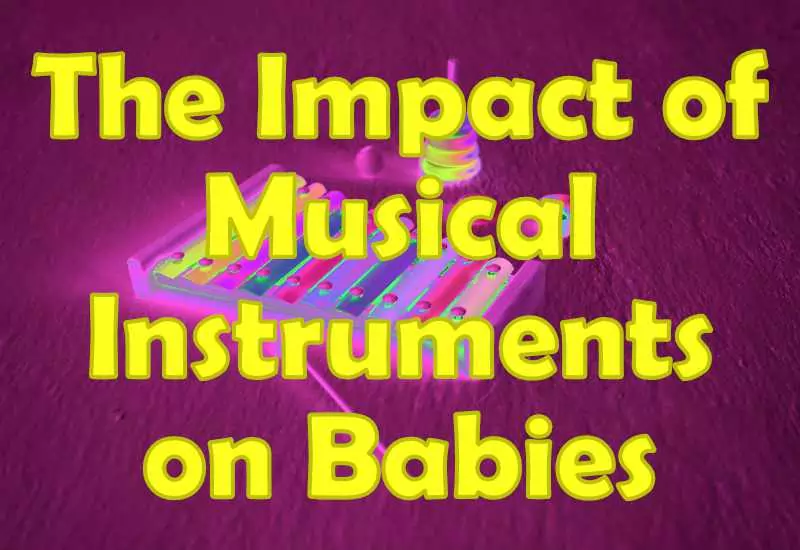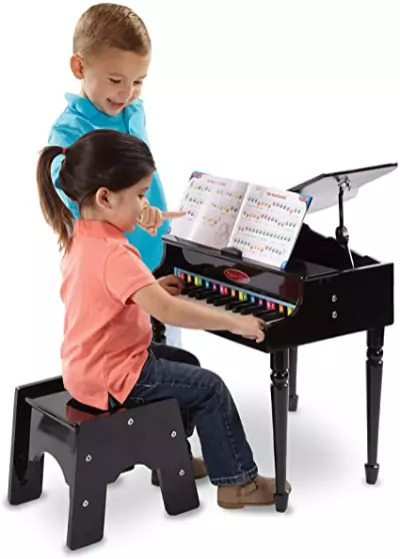The Impact of Musical Instruments for Babies Development?

Contents
The Impact of Music on the Infant Brain
How do music and musical instruments for babies development work? Have you ever noticed that music is present in almost every aspect of your life? You hear from television, movies, theater, church, etc. You can find one person in every street corner either singing or playing instruments. Music is present in family gatherings, events, and holidays. It is no surprise that you’ve been hearing music even when you were just in the womb.
From the child’s birth, parents instinctively use music to express happiness and love, to help soothe and calm their kids, and to engage and communicate. You can build on these instincts by knowing how impactful music and musical instruments for babies development.
The Benefits of Music
The Brain and Creativity Institute at the University of Southern California released a study in 2016 on how musical experiences in childhood can enhance brain development, specifically in the areas of reading skills and language acquisition. Additionally, the National Association of Music Merchants Foundation (NAMM Foundation) says that learning to play a musical instrument helps improve mathematical learning and may increase SAT scores.
However, academic achievement is not the only benefit of music exposure and education. Music lights a switch in every area of child development and skills for school readiness, including language, intellectual, motor, social-emotional, and overall literacy. Music allows the body and the body to work together. A child who is exposed to music early can easily learn the sounds and meanings of words. Their motor skills are developed by dancing. No matter what age you are, music helps strengthen memory skills.
Music is for Kids of All Ages
Children of all ages can easily express themselves through music. Even infants and toddlers bounce, sway, move their heads and hands in response to music. You’ll hear preschoolers humming a tune or singing a song that they just made up. The older kids choose their own kind of music. They listen to the most popular songs today. Music can forge friendships and relationships.
Introducing Musical Instruments to Kids
The best way to get your kids interested in an instrument is to make music a part of their life. They are in their formative years. Kids can learn and absorb whatever you teach them at this stage.
When little kids hear music, observe how they can easily absorb and learn musical concepts like melody, changes in pitch, and rhythm.
However, you shouldn’t force very young kids to pick up and learn how to play any instrument you give them. Let them choose what musical instrument appeals to them. For very young children, you’ll find a toy keyboard or piano, there are even drums, even a small electric guitar.
Instruments Children Can Learn to Play Music
The Xylophone
Toddlers recognize song melodies before they can even understand the words. They start humming tunes before they can talk. Most xylophones today will appeal to young kids because they come in different colors, sometimes with animation.
Hand Percussion
Examples of hand percussion instruments are hand drums, rattles, shakers, bells, etc. Your young kids can easily pick up these instruments with their hands and start playing music almost instantly. Early on, young kids may develop coordination and rhythm.
Piano
The piano is ideal if your children are in elementary school. The piano is good for people of all ages – young and old alike. Playing the piano helps enhance fine motor skills, concentration, and improves self-esteem. Playing beautiful piano music also helps relieve stress.
Ukulele
Your kid in elementary school will enjoy learning how to play the ukulele. Kids may develop hand-eye coordination while playing the ukulele.
Drums
At first, it could be all noise, but when your kids will eventually learn how to use the drums to play music and express themselves. The drums are ideal for children in elementary school, middle school, and high school.
Guitar
The guitar is recommended to kids in middle and high school. Children learn the basics of music by playing the guitar.
Flute
The flute is ideal for students in middle and high school because it needs patience. Your kids will learn the value of hard work through playing the flute – they have to make sure their hands and arms are in a lifted position for long periods just to make beautiful music.
Conclusion
Music is very much part of our everyday life. Playing and learning music is beneficial to people of all ages. Being introduced to music early will allow them to develop motor skills, communication skills, self-esteem, patience, and learn the value of hard work.
Parents, Teachers & Sheet Music Seekers:
If I offered to provide you hundreds of legit sheet music PDFs for your kids:
- Brand-New & Exclusive Compositions
- Age & Level Appropriate
- With INSTANT Online Access
- Worry-FREE Licensing & Copyright
...would you take me up on that offer?
ABOUT
I started Music4Kids with a simple goal in mind: To provide valuable information to guiding parents who want to raise musically inclined kids.
Click to read on
